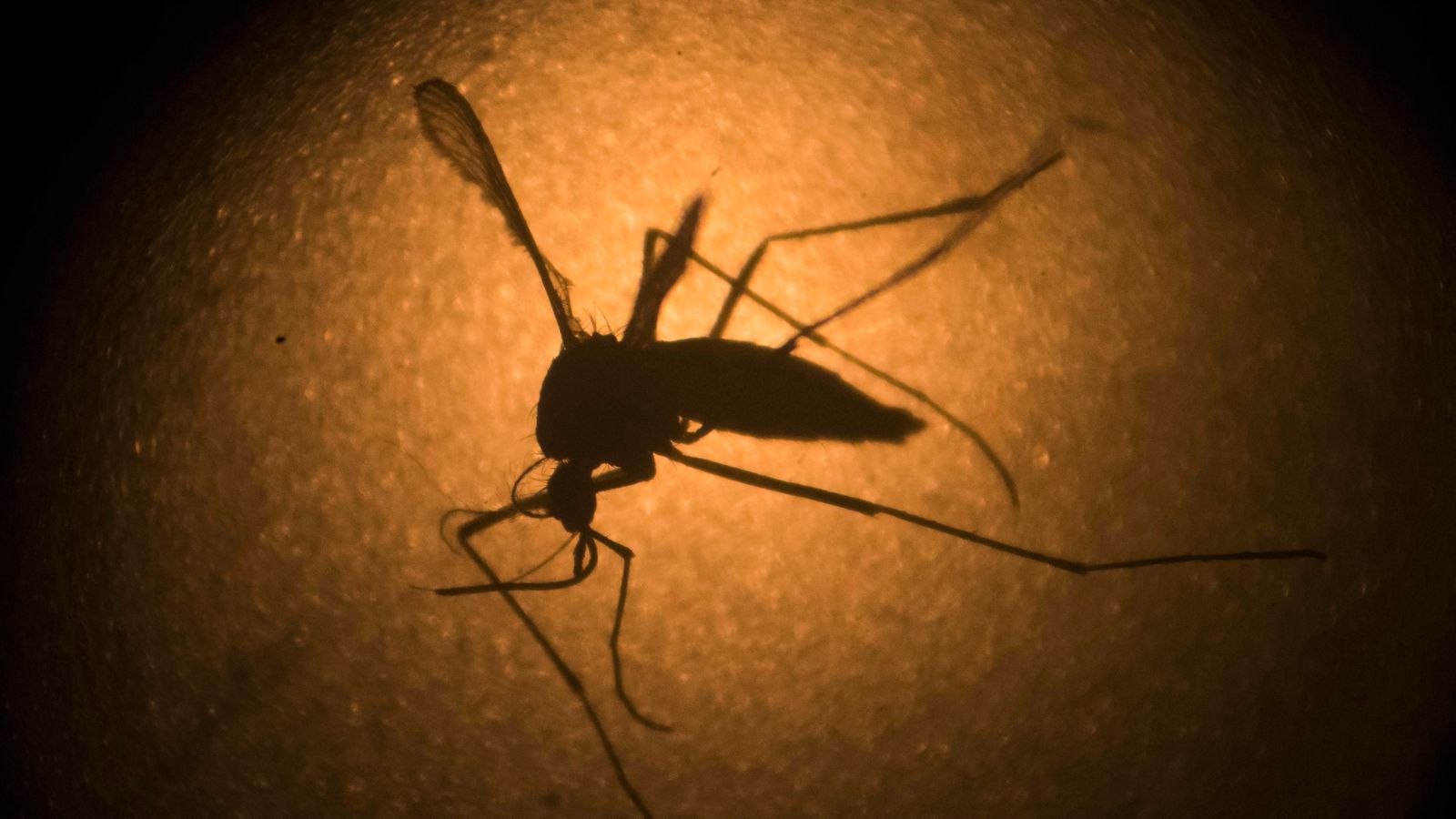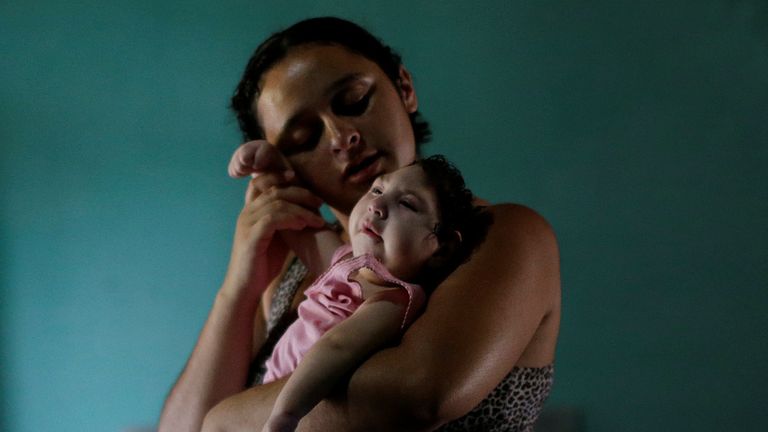The mosquito-borne Zika virus is a single mutation away from becoming more infectious and harmful, scientists say.
There is no vaccine for Zika but symptoms often don’t develop or are mild such as a fever, rash and conjunctivitis.
However, it can cause birth defects such as microcephaly, where a child is born with a small head and often a smaller brain.
Rarely, it can affect the nervous system through Guillain-Barre syndrome.
Scientists in California mimicked how it could mutate in humans by switching the virus back and forth between mosquito and mouse cells.
The study found Zika’s virulence – its ability to cause disease and damage – increased as a result.
Researchers also looked at whether the virus evolved differently in mice that had previously had dengue fever.
The same Aedes mosquito spreads the two viruses and people who’ve had dengue have temporary protections against Zika.
However, the same mutant strain of Zika developed in both mouse cells exposed to dengue and those that weren’t.
Read more: What is Zika virus?
Pregnant mice were then infected with the mutant strain; scientists again found it was more virulent with “markedly increased fetal resorption”, suggesting a greater chance of birth defects should the virus mutate in the real world.
The study, published in the Cell Reports journal, concludes that “it seems likely that [Zika] will continue to evolve in a manner that increases its virulence or transmission”.
It said screening for changes to Zika could help early identification of a new mutation and avoid a potentially damaging outbreak.
There were dozens of cases in the Indian city of Kanpur in November last year and a significant outbreak in Brazil in 2015.
The virus is found in parts of the Americas, the Caribbean, Africa and Asia, but the UK does not have the Aedes mosquito that carries Zika.
It has also been shown to spread through sexual intercourse and blood transfusions.

